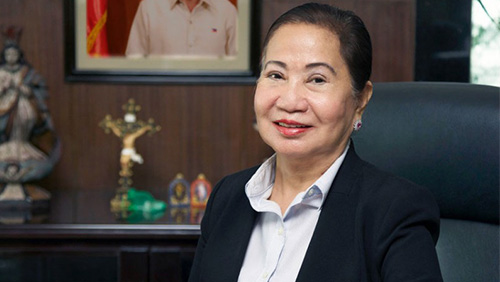State regulator Philippine Amusement and Gaming Corporation (PAGCOR) is not looking to sell casinos earlier targeted for privatization just yet, Inside Asian Gaming reported.
According to PAGCOR’s chairman and CEO Andrea Domingo, the revenue these casinos generate for the government is more advantageous than if they were to be sold off to private operators.
 She said the agency would continue its dual role as both casino operator and regulator “for the next few years, because they’re still profitable. Because the PAGCOR-owned and -operated casinos, the GGR [gross gaming revenue] they yield goes directly to the government, 100%. With the IRs [integrated resorts], our share of the GGR is about 19.5%. So if you look into that and the contribution to the national government every year, if you take this out it will take five years for a new IR to contribute that amount which automatically lessens our net contribution to the national government by PHP22 billion [$405.2 million] for at least the next 10 years.”
She said the agency would continue its dual role as both casino operator and regulator “for the next few years, because they’re still profitable. Because the PAGCOR-owned and -operated casinos, the GGR [gross gaming revenue] they yield goes directly to the government, 100%. With the IRs [integrated resorts], our share of the GGR is about 19.5%. So if you look into that and the contribution to the national government every year, if you take this out it will take five years for a new IR to contribute that amount which automatically lessens our net contribution to the national government by PHP22 billion [$405.2 million] for at least the next 10 years.”
Domingo projected earnings of PHP26 billion-PHP27 billion ($479 million-$497 million) for 2018.
Such a move to defer any sale of PAGCOR’s casinos goes against privatization plans first unveiled in August 2016 as a means of narrowing the budget deficit, about PHP193 billion ($3.6 billion) as of the first half of 2018.
Just last February, Philippine Finance secretary Carlos Dominguez reiterated the plan to sell the PAGCOR casinos within the year. Domingo, however, pointed out that there have been no discussions yet on the matter, and that the government procurement law prevented her from talking about it. “The issues that are being raised about PAGCOR owning casinos as well as regulating privately-owned casinos, that it’s a conflict of interest, this doesn’t actually happen because being a government office, I have to go through procurement law, which is a nightmare,” she said.
Domingo said it was unclear what was to be sold, since the properties in which the casinos are located are leased.
She also noted that casino patrons are already familiar with existing staff, and are “so used to dealing with these people, the personalized service, the ‘Hi, Hello.’ They know each other’s first names. Those are what the IRs will never be able to take from PAGCOR.”
Early this year, PAGCOR announced they would not be accepting new license applications for casinos, a move that reflected President Rodrigo Duterte’s critical stance towards gambling.
Last July, the Philippine Commission on Audit (COA) reported that the state regulator owed PHP21 billion ($387 million) to the government in unpaid remittances over a period of seven years. The state auditor also noted “excessive” spending by PAGCOR for its employees.
Domingo had previously said the agency was looking to meet revenue targets partly through an increase of Philippine Offshore Gaming Operators (POGOs).